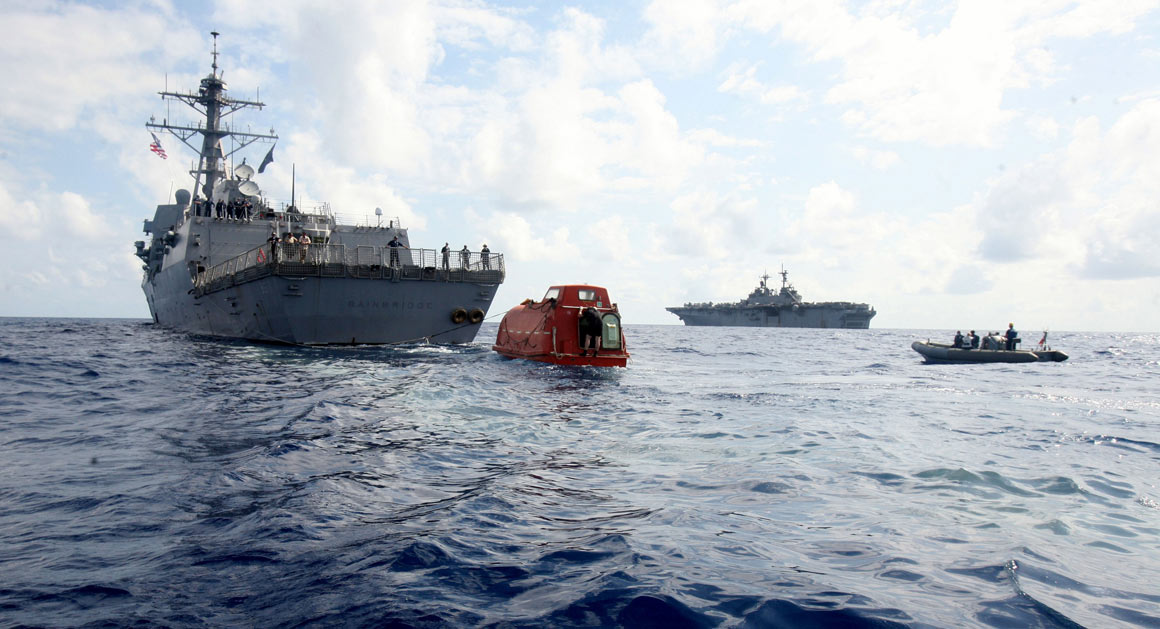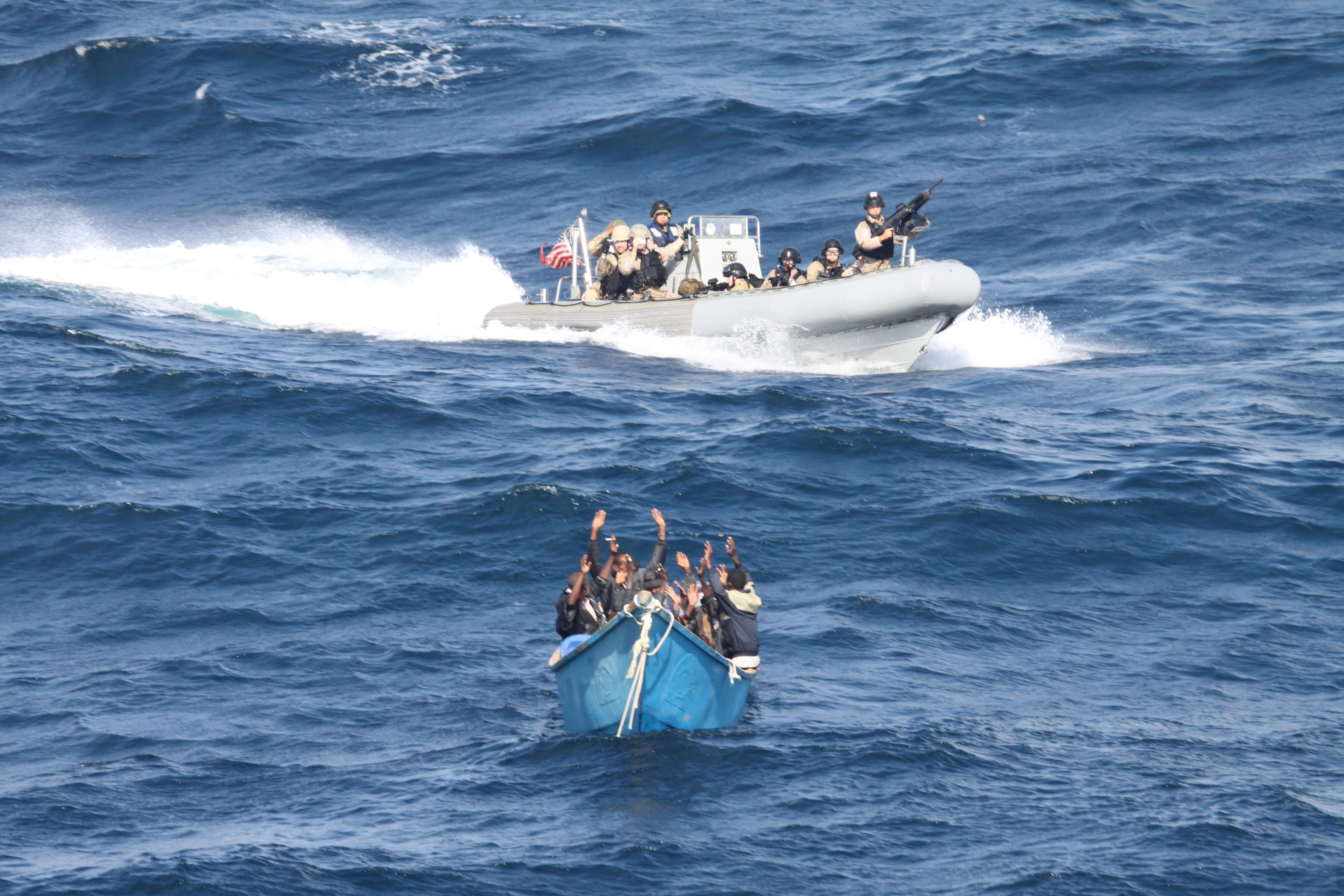
A gang of pirates kidnapped me in January 2012 while I researched an article and a book in the town of Galkacyo, in central Somalia. The gang held me for 32 months in the desert bush, on a captured ship, and in a series of half-built homes. The ransom demand was $20 million and it stayed at that stratospheric level for months after the dramatic rescue of American aid worker Jessica Buchanan and her Danish colleague Poul Thisted, by SEAL Team 6, four days after my capture.
I was never sure whether I might be ransomed, like most pirate hostages, or rescued, like Buchanan and Thisted, or killed in the attempt, like Luke Somers and Pierre Korkie in Yemen last year. The prospect of a (successful) rescue graced my dreams in Somalia the way it infested my kidnappers' nightmares.
When I walked free in September there was a lot of debate over whether Europe or America took the right approach toward hostage-takings. Governments in continental Europe claim not to pay ransoms, but probably find ways to do it through intermediaries. America, like Britain, won't. I'm a dual citizen, so the U.S. and German governments both played a role in my freedom, and without giving away sensitive details I think I might venture an opinion.
The European position is two-faced, but it has to be. The U.S. position is downright schizophrenic. Since early 2002, in the wake of the Patriot Act, a directive signed by President George W. Bush has guided American agencies in all foreign hostage cases, terrorist or criminal, causing no small amount of confusion. The directive is secret, but it seems to have dried up Washington's behind-the-scenes negotiations with kidnappers. (Negotiation isn't the same as paying ransom; chit-chat can sometimes soften the kidnappers' line.)
Even worse, over the last decade or so, the State Department and the National Security Council have also moved to block families from paying private ransoms at all. This meddling in my case was annoying, not disastrous. I wasn't a terrorist hostage, so paying a ransom—as my family finally did—was permissible. Meddling in the case of Americans held in Syria was more sinister. Diane Foley, the mother of James, the first hostage beheaded by Islamic State last summer, said a member of the National Security Council warned her not to attempt to ransom her son. Paying ISIL would lend material support to terrorists, the government argued, which is against the law.
To a bureaucrat that may sound logical. To a blogger, even advisable. To a family it's intolerable, and the only moral position left to a government that leans on mothers not to ransom their children is to send in the SEALs. If you don't pay ransom, you'd damn well better rescue.
Yes, the military did make more than one attempt last summer to rescue James Foley and Steven Sotloff and Kayla Mueller, but they were too late; the White House—in spite of its hard line against ransoms—showed an abundance of caution.
Let's follow this line of logic for a minute, because nothing other than U.S. military involvement will discourage the capture of Americans abroad. No-ransom pronouncements by presidents or the State Department don't work. Those declarations are featherweight for Somali pirates or for any half-educated enemies of the West who fail to keep international ransom policies straight in their minds and insist on believing that a fat nation will buckle to a bunch of AK-47s and rocket launchers.
Violence is a clearer language for kidnappers. (I hate to admit that, as a writer.) A Risk Management Officer for the GTZ, a German development group, noticed that kidnappings of aid workers in Afghanistan declined after two rescues in late 2012—one by British Special forces, the other by Navy SEALs. The assessment at the time "was that gangs were no longer looking for Westerners because there was too much likelihood of a rescue," a researcher at the German Institute for International and Security Affairs told me last week.
One SEAL died in the 2012 Afghanistan mission. U.S. citizen Luke Somers and Pierre Korkie, a South African, both died at the hands of their captors in Yemen last December before a Special Forces team arrived. The problem with an aggressive rescue policy is that it has to tolerate such devastating loss. One experienced hostage negotiator in America, a friend of Korkie's, tells me he would shy away from too many rescue attempts; but he admits a more aggressive policy would reduce kidnappings. "Israel has decided to accept the risk of losing hostages as long as all the kidnappers die in a rescue attempt, and the message is sent that Israel won't pay ransom," he said. "And, it's been a long time since an El-Al flight has been hijacked."
An Israeli-style rescue policy is the only logical end of the U.S. refusal to negotiate or pay. It's not impossible. But hostage cases are so varied that even the hardest line has to bend with circumstance. Israel negotiated a prisoner exchange with Hamas for Gilad Shalit in 2011, for example. The Obama administration settled on a similar exchange for Army Sgt. Bowe Bergdahl, and the Reagan administration famously traded arms to Iran for hostages in Beirut during the 1980s.
U.S. policy, nevertheless, seems to have frozen up since 2002, in spite of the nation's tremendous resources. Washington hamstrings itself with limits on negotiation without—as far as I can tell—lowering the bar for a rescue. Our hostages, in effect, stay put.
So, in the trans-Atlantic derby, two-faced European policy wins—for now, by default. It pleases very few people. But it has saved a few journalists' lives.



